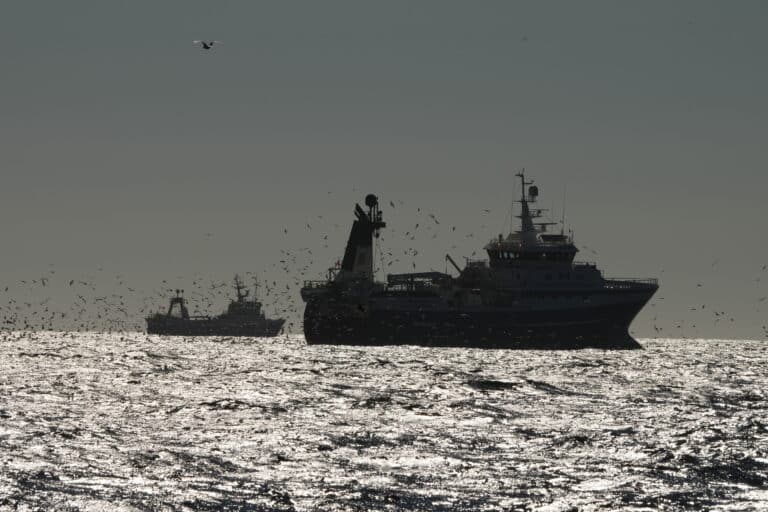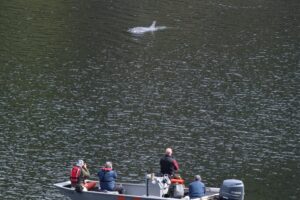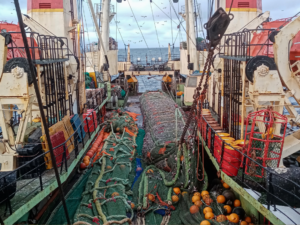
Recent research suggests that bottom trawling, a common fishing technique involving dragging nets along the ocean floor, may be a significant source of carbon emissions, potentially as impactful as the output from 100 coal-fired power plants annually. Bottom trawling, which yields over a quarter of the world’s wild seafood from species like shrimp and sole, is also notorious for damaging delicate marine habitats such as coral and sponges.
Led by Trisha Atwood of Utah State University, the research team discovered that bottom trawling releases approximately 370 million metric tons of carbon dioxide each year by disturbing carbon-rich sediments on the seafloor. This figure is comparable to the emissions produced by all of the world’s airplanes.
The study, building on earlier research published in 2021, aimed to refine previous estimates by mapping trawling activities and calculating the amount of carbon dioxide transferred from the ocean to the atmosphere. They found that over half of the carbon released by trawling is emitted into the atmosphere within a decade, a much quicker transition than previously thought.

However, the findings have sparked debate within the scientific community. Critics, including Jan Geert Hiddink of Bangor University and Ray Hilborn of the University of Washington, argue that the estimates of carbon release are exaggerated and call for more precise research. They suggest that the natural processes involving marine microbes might also contribute to these emissions, complicating the direct impact assessment of trawling.
Despite the contention, Atwood and her team maintain that their models are consistent with empirical data, whereas critics’ arguments remain largely theoretical. The discussion underscores the need for further investigation into how trawling affects the ocean’s carbon cycle.
The study advocates for incorporating sea-based carbon emissions into climate policies, suggesting that understanding the full environmental cost of trawling could influence global strategies for managing fisheries and protecting marine ecosystems.
Read The Guardian article here.




